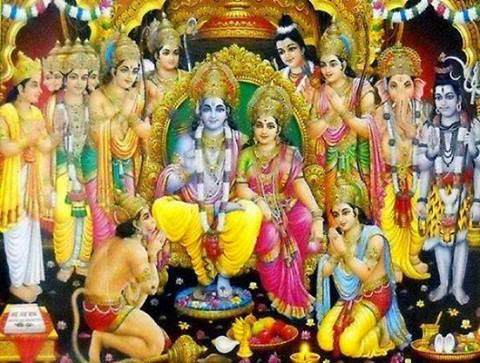76. EPILOGUE :

Dasaratha's troubles began with love. Then the love of Rama and Sita is the theme and substance of Ayodhya Kanda. In love that is not opposed to dharma, we find a manifestation of God. So was it affirmed by Sri Krishna when he explained his manifold being to Arjuna. The Ramayana has, for its twin theme, love that is opposed to dharma also. The Ramayana is undoubtedly a great love story. Those who regard the Ramayana as an allegory interpret Sita as the individual soul and Rama as the Supreme Being. God seeks and pursues the human soul till He secures it. He is eager to save us. It is enough if we just do not obstruct or resist. There are also other interpretations and applications of the Ramayana. Sita, the female counterpart of the Supreme Being, is the embodiment of compassion and grace. Compassion is the Supreme Mother and she is enthroned in the heart of the Lord. When she casts her merciful glance on us, we reach the feet of God. Parvati...

